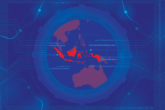September 06, 2018
Beyond Killer Robots: How Artificial Intelligence Can Improve Resilience in Cyber Space
Recently, one of us spent a week in China discussing the future of war with a group of American and Chinese academics. Everyone speculated about the role of artificial intelligence (AI), but, surprisingly, many Chinese participants equated AI almost exclusively with armies of killer robots.
Popular imagination and much of current AI scholarship tend to focus, understandably, on the more glamorous aspects of AI — the stuff of science fiction and the Terminator movies. While lethal and autonomous weapons have been a hot topic in recent years, this is only one aspect of war that will change as artificial intelligence becomes more sophisticated. As Michael Horowitz wrote in the Texas National Security Review, AI itself will not manifest just as a weapon; rather, it is an enabler that can support a broad spectrum of technologies. We agree: AI’s most substantial impacts are likely to fly under the radar in discussions about its potential. Therefore, a more holistic conversation should acknowledge AI’s potential effects in cyber space, not by facilitating cyber attacks, but rather by improving cyber security at scale through increased asset awareness and minimized source code vulnerabilities.
Read the Full Article at War on the Rocks
More from CNAS
-
Siliconsciousness: The AI Competition: Public Policy Strategies: Part 1
This episode comprises the first part of our special event, “The AI Competition: Public Policy Strategies”. The event, co-hosted by MIT Technology Review, brings together some...
By Dr. ED McGrady
-
How Drones in Ukraine Are Reshaping War
Samuel Bendett, a senior adjunct fellow at the Center for a New American Security, joins The Cipher Brief to discuss the current situation of drones being used in Ukraine.Watc...
By Samuel Bendett
-
Countering the Digital Silk Road: Indonesia
This year marks the 10th anniversary of the Digital Silk Road (DSR), China’s ambitious initiative to shape critical digital infrastructure around the world to advance its geop...
By Vivek Chilukuri & Ruby Scanlon
-
How Secure Is America’s AI Advantage?
https://www.youtube.com/watch?v=7njJkH7XRa8...
By Paul Scharre



